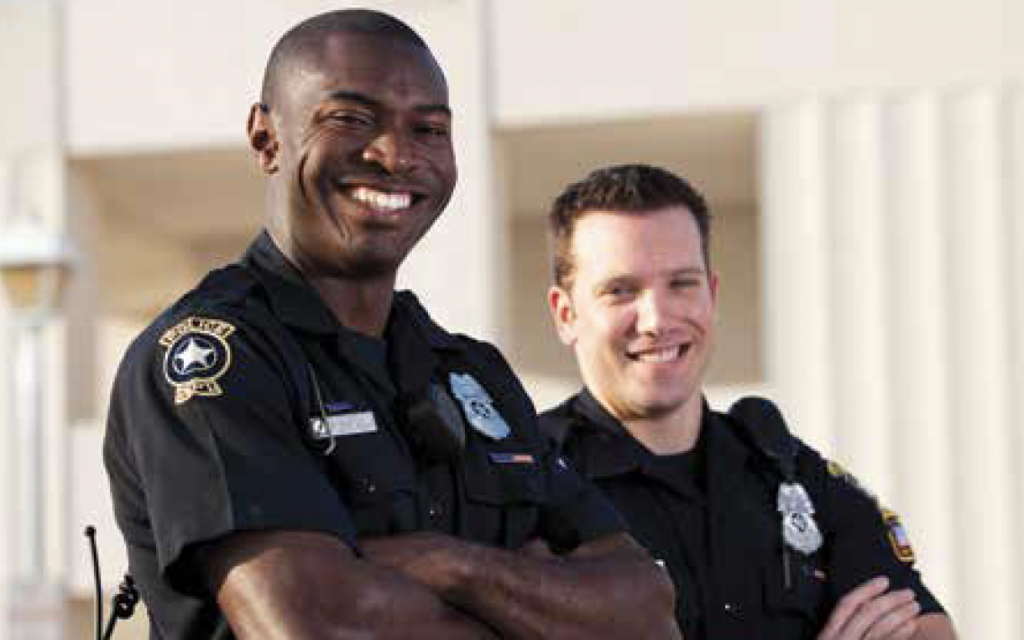
Features
Holding the Line
The power in partnership
November 23, 2020 By Michelle Vincent
 Photo: Kali9/E+/Getty Images
Photo: Kali9/E+/Getty Images As we continue to work on implementing The Haven, a mental health treatment centre for our first responders and uniform personnel, I am reminded of the power we have in partnership. Partnership means we are never alone, always working towards filling gaps that pop up. Ongoing communication with our partners fosters discussion that brings to light overlap and areas where resources are needed.
Partnerships are based on commonality and as a result are most often — if not always — solution-focused. They promote this focus on solutions as research and experience is shared. Partnerships also foster rich communication and sharing. However, past relations between the academic and the policing community have often been strewn with mistrust, suspicion as each work from radically different conceptions.1 Policing, being a hands-on profession that relies often on intuition and past experience, differs greatly from the academic world, which is more scientific and evidence-based in their approach of understanding.2
Today, these partnerships are key to the successful operation of specialty units in policing and the in-depth training they require. Many executive command members have a master’s degree in leadership, criminology and even psychology. It is often expected those leading at a higher level will have furthered their education.
Partnerships tend to be inspiring. When groups of two of more people focus on what they are most passionate about and the commonalities within that focus, momentum is created. This allows those involved to “see” doors/solutions that are often outside of the mainstream thinking box. Brilliant creators are always involved in multiple partnerships as they create. These partnerships can be unspoken, like the artistry we see unfold organically in nature. Open creation is a key aspect in leadership in the world of policing as we bring in leading-edge ways of both working in our field and serving our communities.
One police organization has created an overall plan to shift the existing culture — that has been experienced by some as toxic and solitary — to positive, team-oriented, healthy and solution-focused. They hired a third-party organization, Being First, that is skilled in creating massive positive change within challenging organizational climates to come in and train their more senior members, (organizational buy-in that comes from the top is most effective).
Project Breakthrough — an in-depth project initiated by this particular police service to change the culture within — is creating various committees within its service, meshing understanding and progression from HR (human resources) to frontline policing of these cultural aspects.
This is a partnership. The senior staff created self-sustaining committees that work in partnership on an ongoing basis to provide a state-of-the-art policing organization.
Of course, as in every partnership, the task is ongoing. In fact, the task’s timeline is infinite, as we continuously discover one another’s strengths and weaknesses, drawing from and supporting each other.
As we serve our communities as police officers, let’s explore more partnership opportunities. Some will be of the old and true kind, like the traditional partnerships we experience in good, old-fashioned community policing. These say, “Come in and visit my environment and let’s learn together how to create the safest, most peaceful and productive organization/location. I/we as police support your intentions and you as representative of our community support ours.”
All partnerships provide an opportunity for appreciating commonality, inspiration, friendship and overall success. How as a leader will you promote partnership in your area of service?
Footnotes
1. Crawford, A. (2019) “Effecting change in policing through police/academic partnerships.” Chapter 9. Critical Reflections on Evidence-Based Policing. London: Routledge, https://doi.org/10.4324/9780429488153
2. ibid.
Michelle Vincent is a retired police officer and the founder of The Haven, Ontario’s first non-profit, inpatient treatment centre exclusive to first responders. Email her at michelle.vincent@thehaven.cloud.
Print this page